Find the equivalent resistance of the network shown in figure between the points . Solution in Gujrati
Suppose a current I enters the network at point a and the same current leaves it at point b. Supposem the currents in ac, ad and ae are respectively. Similar will be the distribution of current at b. The current I leaving at b is composed if form db, from cb andfrom eb. The situation is shown in figure.
As the current in ae is equal to that is eb, the current in ce will equal to the current in ed fron the junction law. If we assume that the branches ced ad aeb do not physically touch at e,nothing will be changed in the current distribution.We can then represent the branch aeb by a single resistance of 10(Omega) connected between a and b. Similarly, the branch ced may be replaced a single resistor between c and d. The circuit is redrawn in figure.This is same as the circuit in figure conected in parallel with a resistance of .So the network is equivalent to a parallel conbination of resistor. The equivalent resistance of the whole network is, therefore,
Topper's Solved these Questions
- BOOK - HC VERMACHAPTER - ELECTRIC CURRENT IN CONDUCTORSEXERCISE - worked out Example1videos
ELECTRIC CURRENT IN CONDUCTORS
- BOOK - HC VERMACHAPTER - ELECTRIC CURRENT IN CONDUCTORSEXERCISE - Short Answer17videos
ELECTRIC CURRENT IN CONDUCTORS
- BOOK - HC VERMACHAPTER - ELECTRIC CURRENT IN CONDUCTORSEXERCISE - Exercises84videos
ELECTRIC CURRENT IN CONDUCTORS
- BOOK - HC VERMACHAPTER - DISPERSION AND SPECTRAEXERCISE - Exercises11videos
DISPERSION AND SPECTRA
- BOOK - HC VERMACHAPTER - ELECTRIC CURRENT THROUGH GASESEXERCISE - Exercises23videos
ELECTRIC CURRENT THROUGH GASES
Similar Questions
Find the equivalent resistances between the points a and c of the network shown in figure. Each resistance is equal to r.
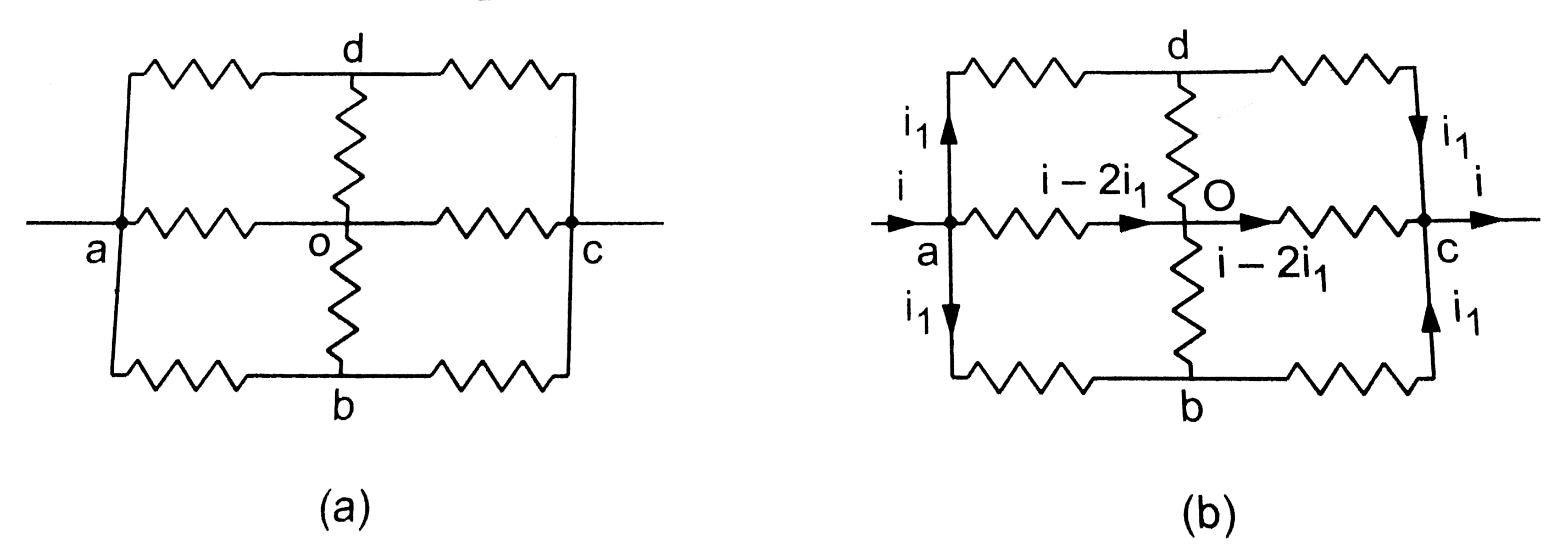 03:14View Solution
03:14View SolutionSuppose you have three resistor each of value (30Ω).List all the different resistances you can obtian using them.
19:36View SolutionThe amount of charge passed in time t through a cross-section of a wire is
Q(t)=At2+Bt+C.
(a)Write the dimensional formulae for A,B and C.
(b) If the numerical values of A,B,and C are 5,3 and 1 respectively in SI units,find the value of the current at t=5 s.View SolutionA flint glass prism and a crown glass prism are to be combined in such a way that the deviation of the mean ray is zero. The refractive index of flint and crown glasses for the mean ray are 1.620 and 1.518 respectively. If the refracting angle of the flint prism is 6.0∘, what would be the refracting angle of the crown prism ?
08:21View SolutionA discharge tube contains helium at a low pressure. A large potential difference is applied across the tube. Consider a helium atom that has just been ionized due to the detachment of an atomic electron. Find the ratio of the distance travelled by the free electron to that by the positive ion in a short time dt after the ionization.
05:30View SolutionFind the equivalent resistance between the point a and b of the network shown in figure.
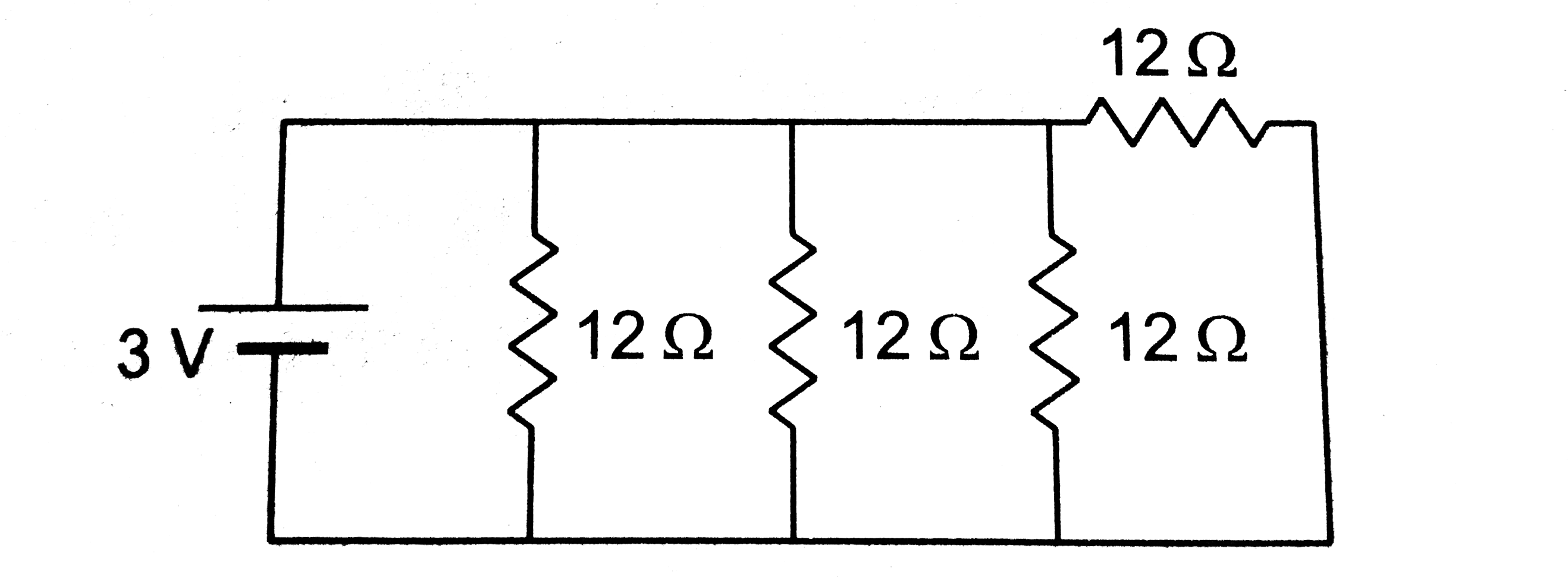 View Solution
View SolutionFind the equivalent resistance of the network shown in figure between the points aandb.
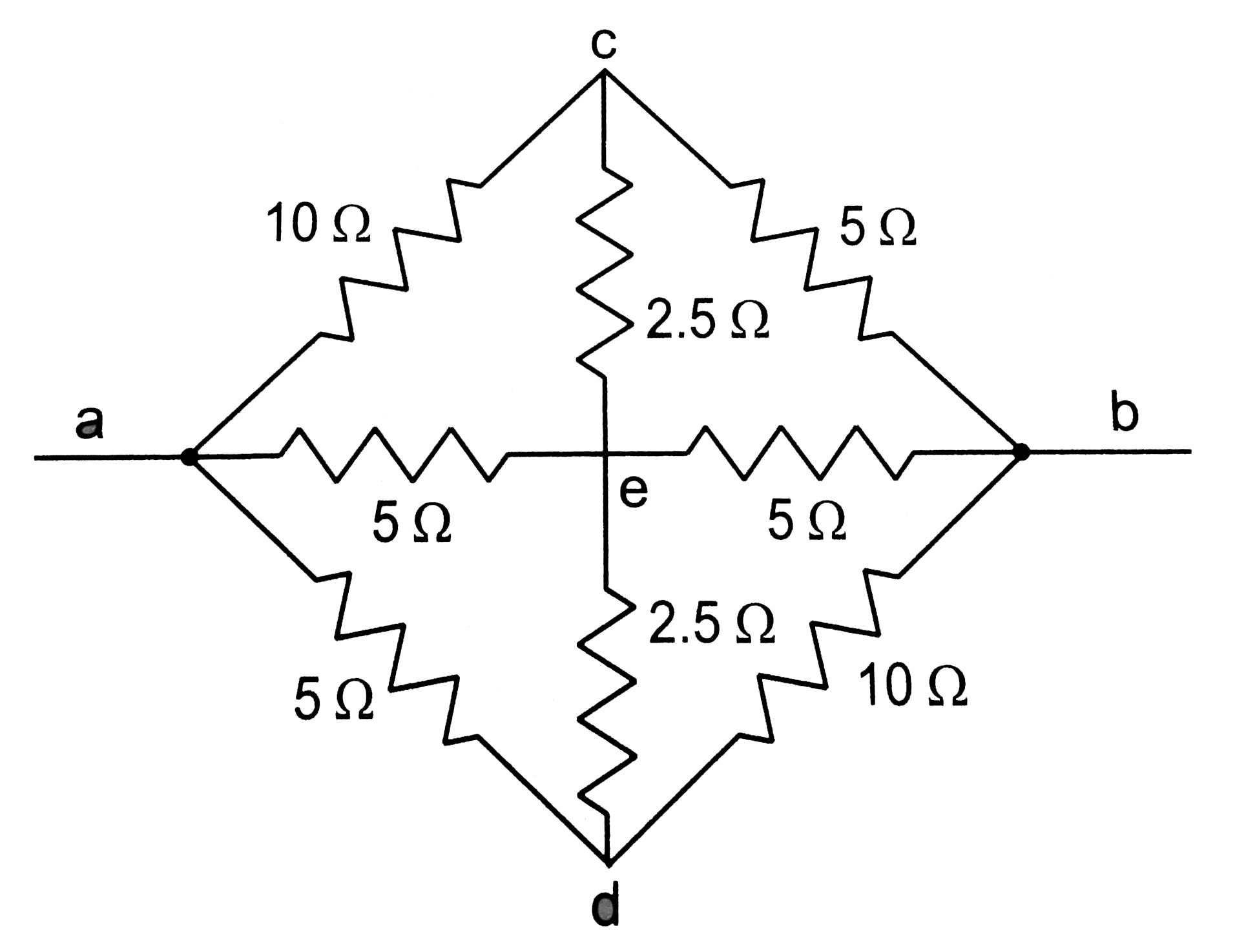 02:31View Solution
02:31View SolutionFind the equivalent resistances of the network shown in figure between the point a and b.
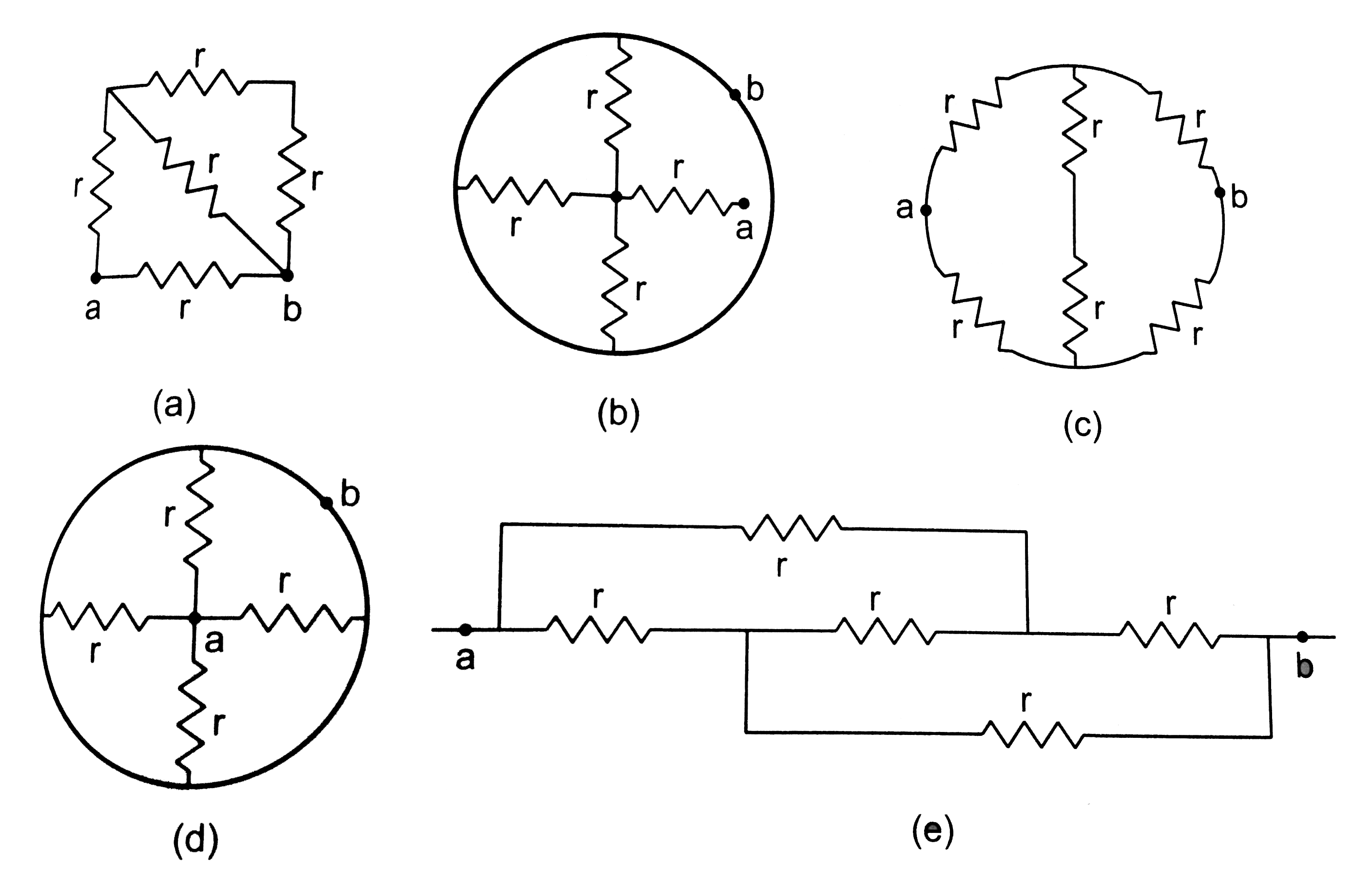 01:58View Solution
01:58View SolutionFind the equivalent resistance of the networks shown in figure between the points a and b.
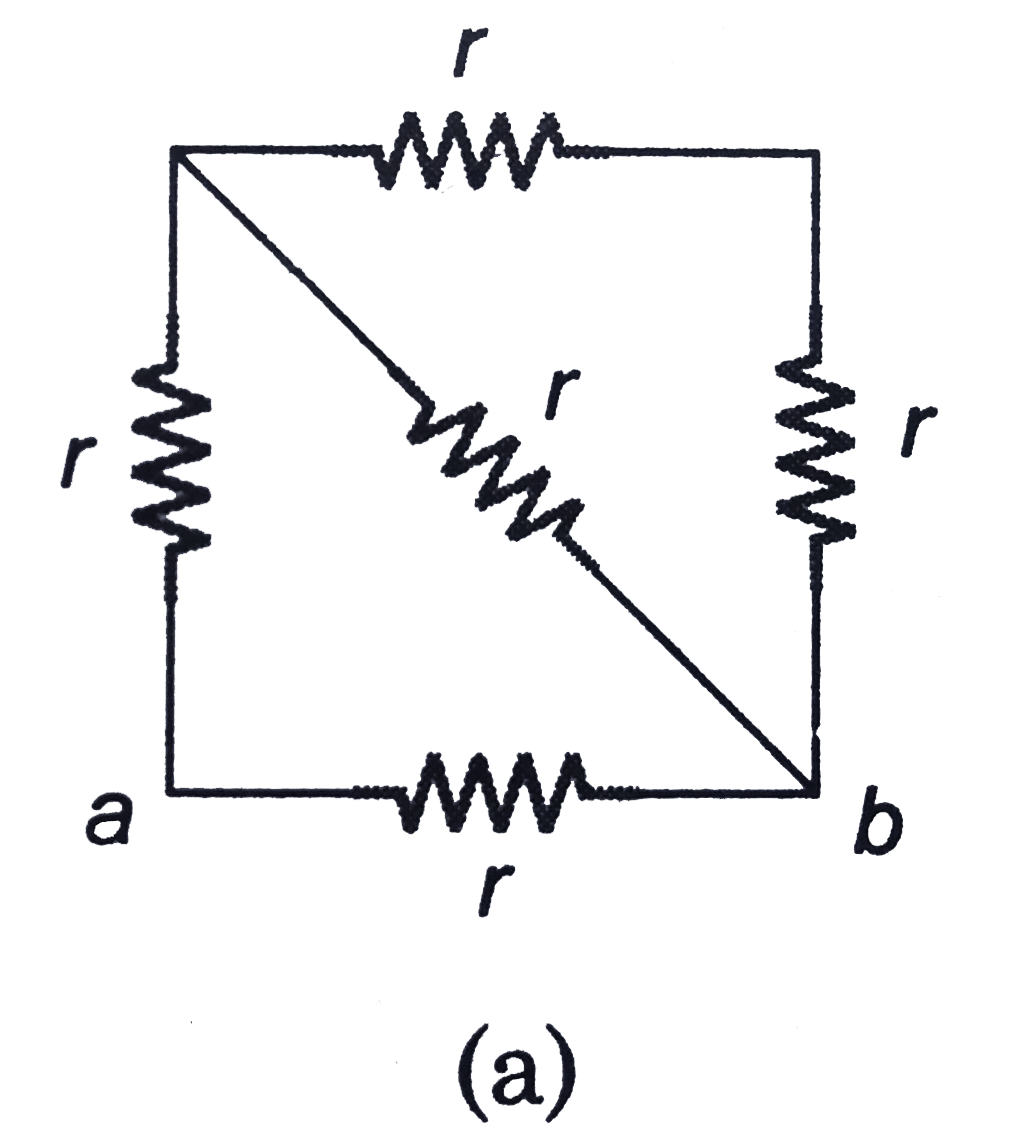
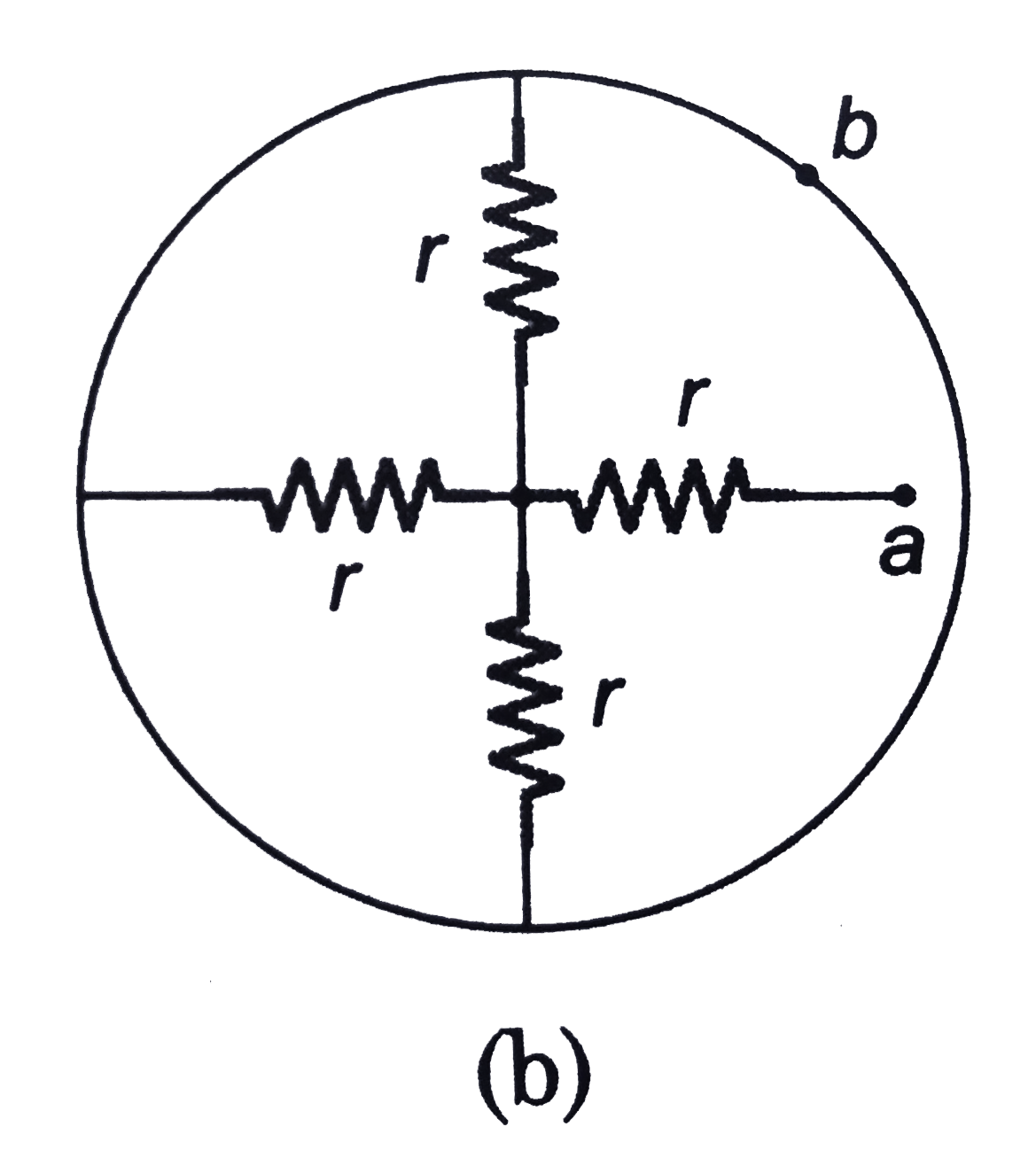
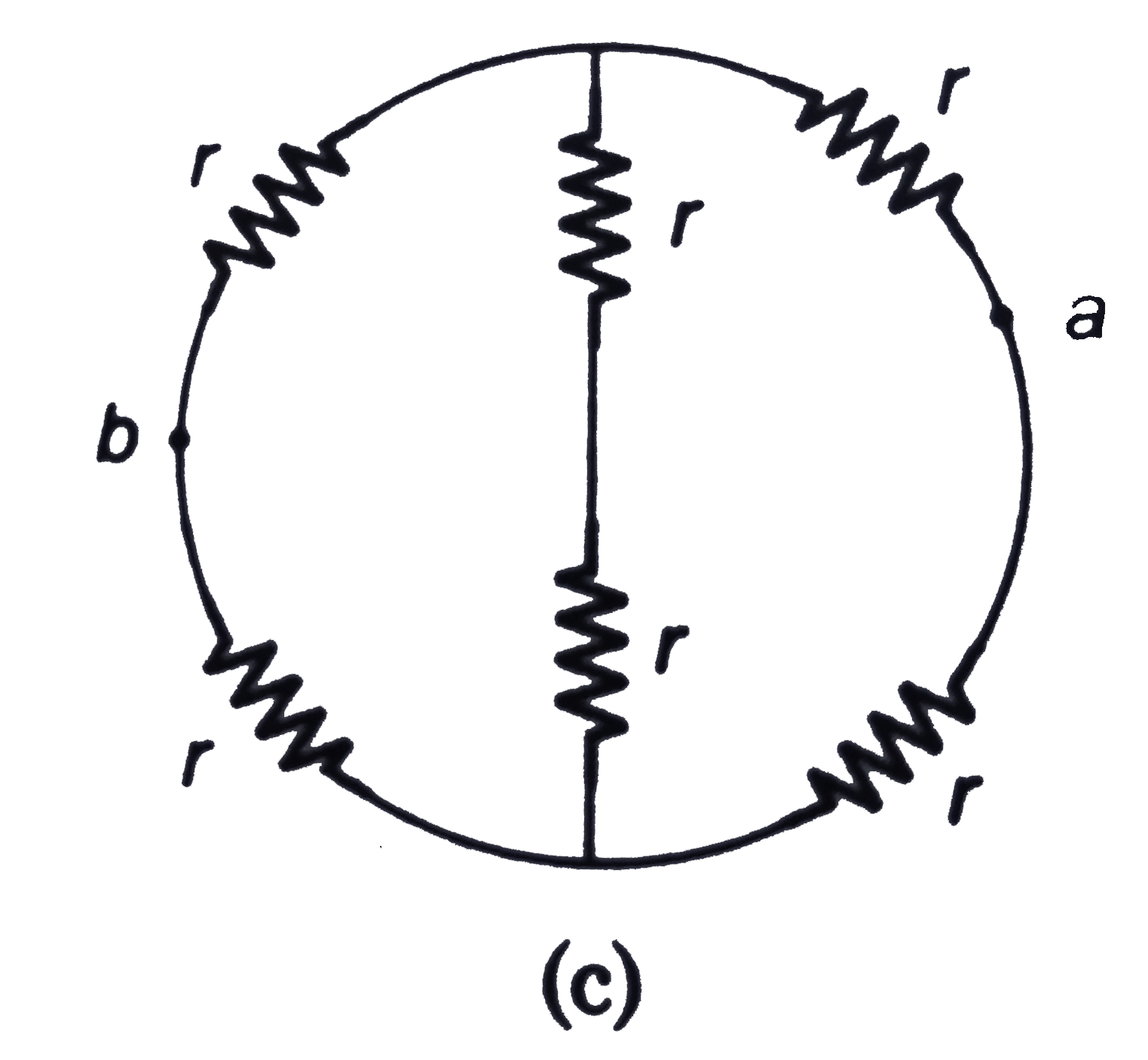
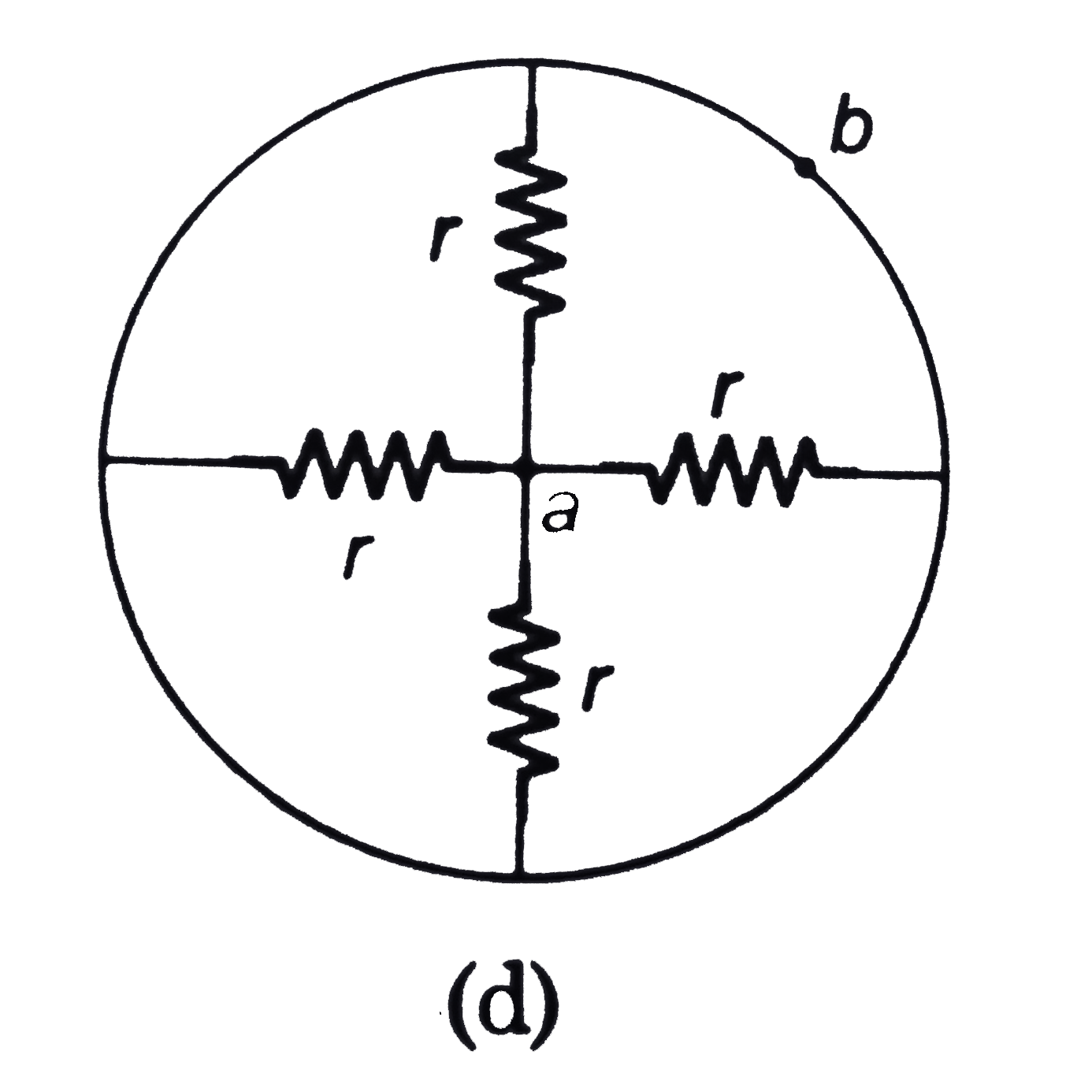
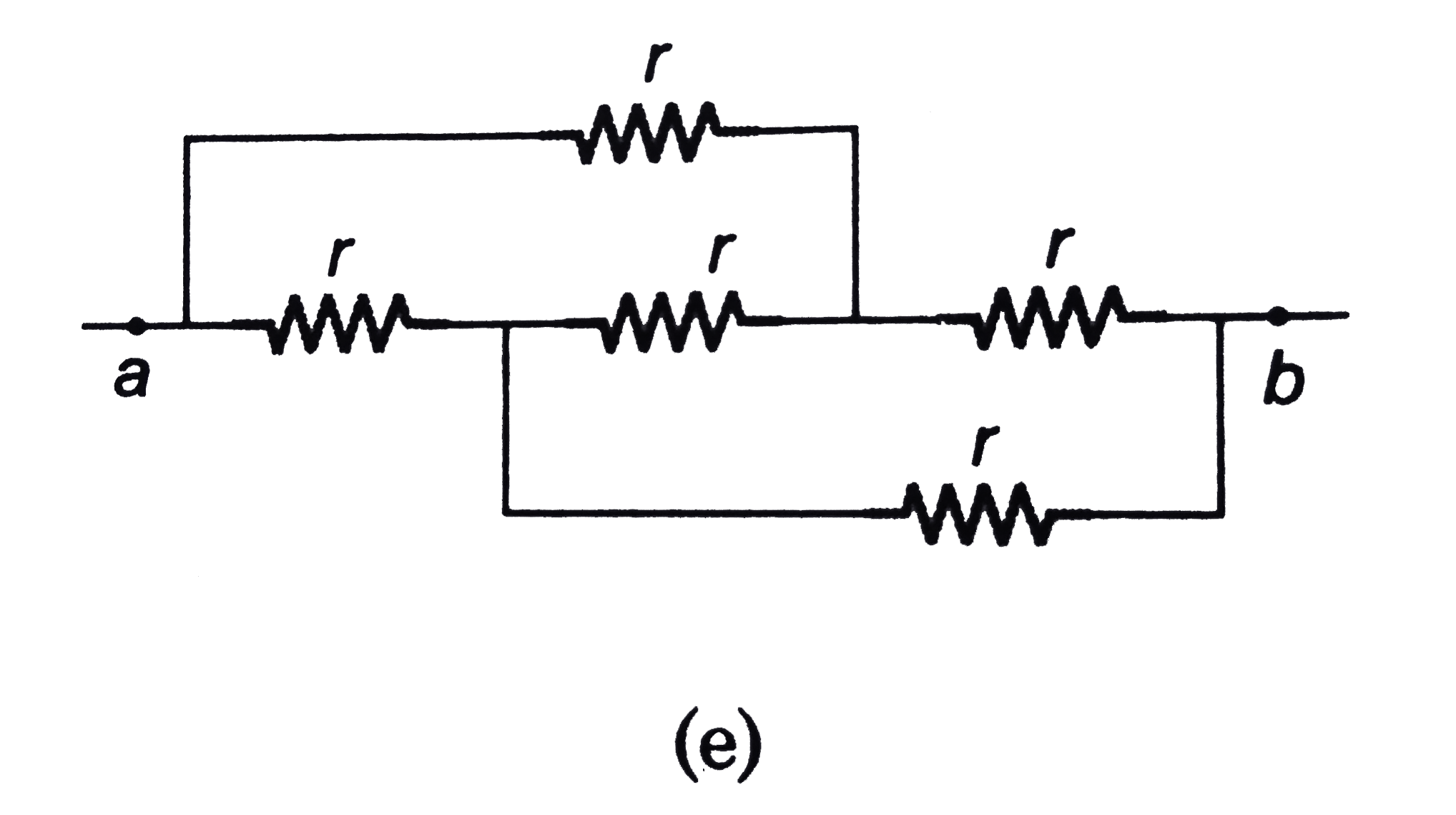 02:47View Solution
02:47View SolutionFind the equivalent resistance between the terminal points A and B in the network shown in the figure.
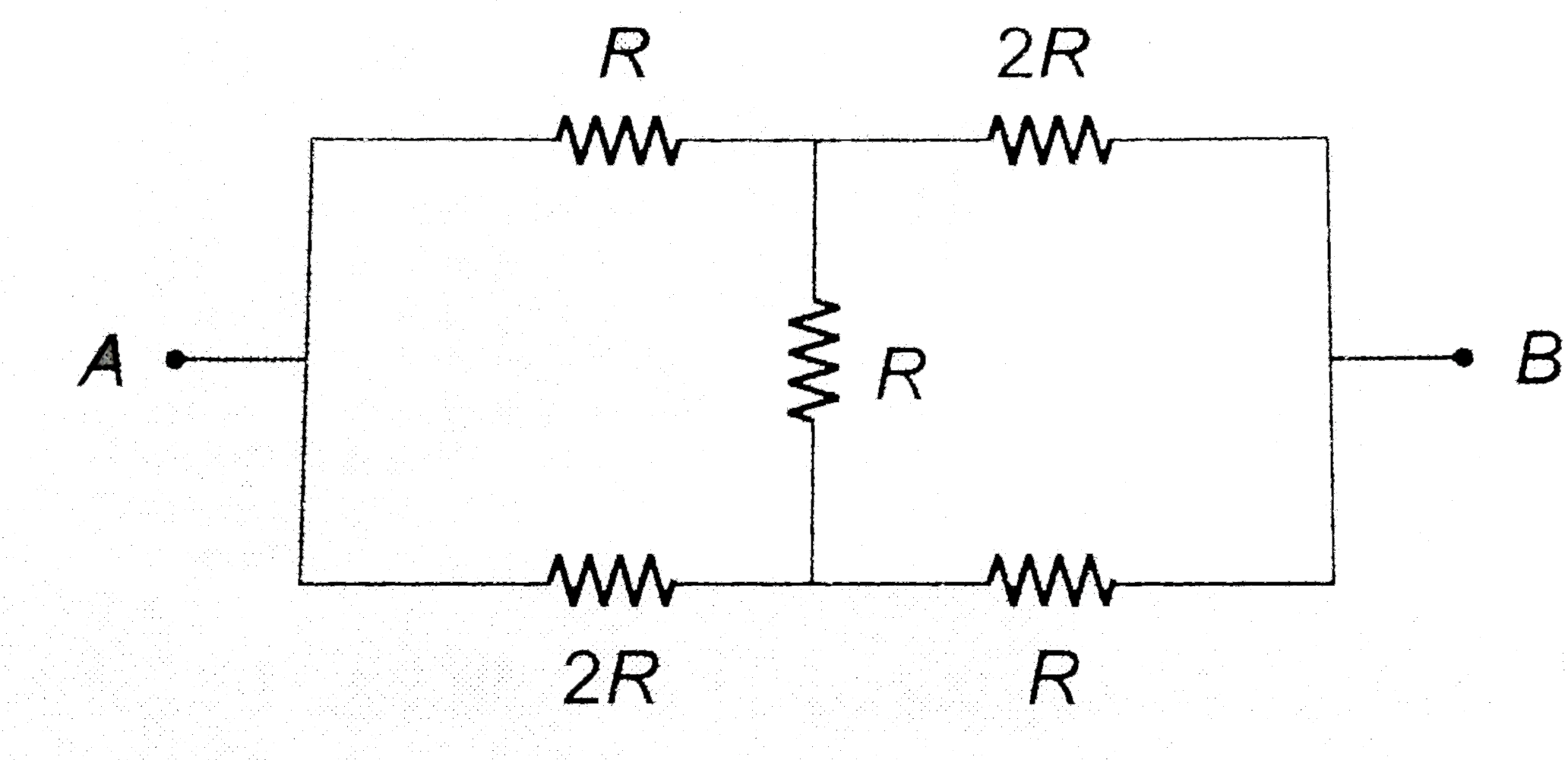 .08:27View Solution
.08:27View SolutionFind the equivalent resistance between point a and b in the network shown in figure.
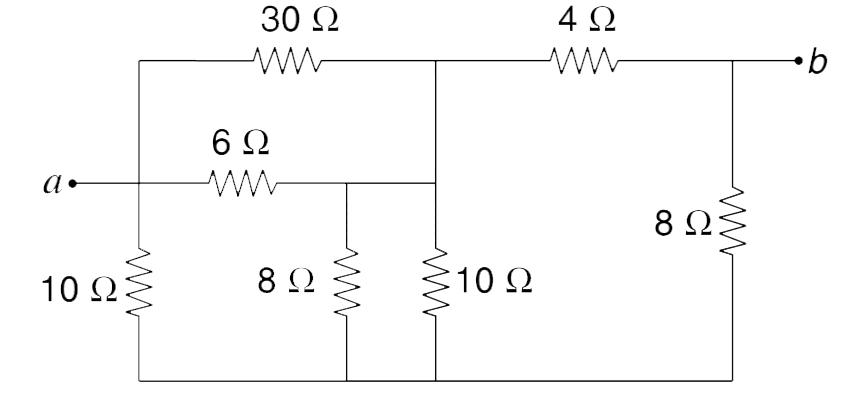 09:52View Solution
09:52View SolutionFind the equivalent resistance of the networks shown in figure. between the points A and B.
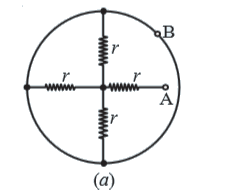 12:05View Solution
12:05View SolutionFind the equivalent resistance of the networks shown in figure between the points A and B.
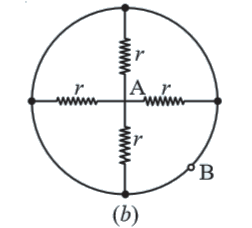 02:05View Solution
02:05View SolutionFind the equivalent resistance of the networks shown in figure between the points A and B
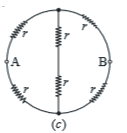 01:50View Solution
01:50View SolutionFind the equivalent resistance of the network shown in figure between the points A and B .
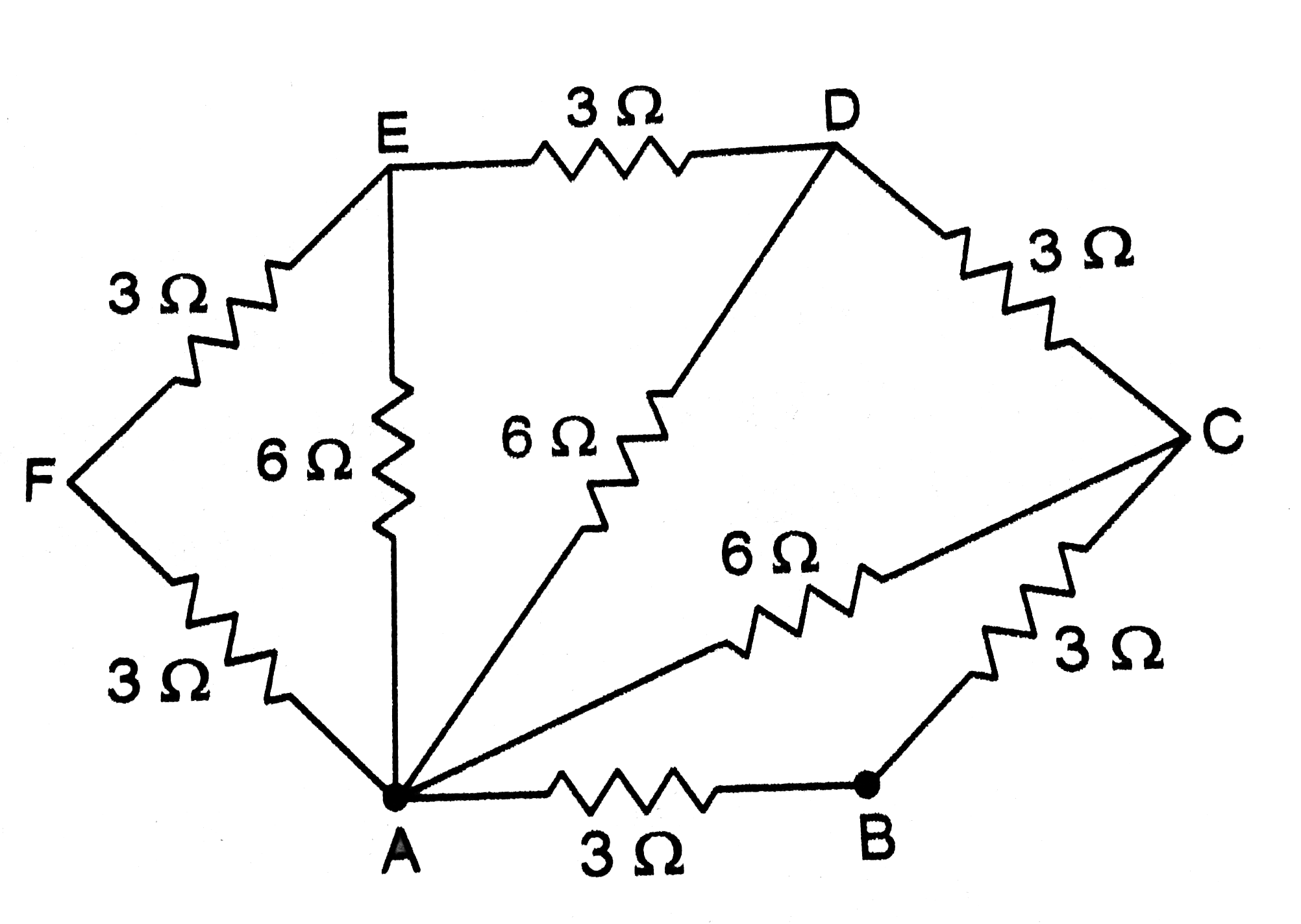 03:13View Solution
03:13View SolutionFind the equivalent resistances of the network shown in figure between the point a and b.
 02:06View Solution
02:06View Solution
